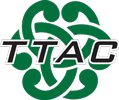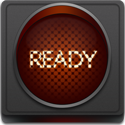|
November 2013 |
 |

TTAC Region 4 at GMU |
|
|
A news brief linking people and resources to support quality practices in the education of all students |
|
For the 2013-14 school year, we have updated the format of our TTAC newsletter. All subscribers will now receive a news brief of information and resources via email once a month from September through May, excluding December. Each news brief will highlight a key topic in education related to supporting the learning needs of all students. |
|
 |
| |
The Americans with Disabilities Act (ADA) (2008) has a three-part definition of disability.
Under ADA, an individual with a disability is a person who: (1) has a physical or mental impairment that substantially limits one or more major life activities; OR (2) has a record of such an impairment; OR (3) is regarded as having such an impairment. As an educator it is as much our responsibility to understand disabilities as is to educate others about disabilities. We must help others recognize that though some students may have differences and various challenges, they remain essential to our community and schools.
http://www.ada.gov/pubs/adastatute08.htm#12102 |
| |
 |
|
Be ready to understand what students with and without disabilities may encounter in the classroom. Ensuring that students with disabilities are educated in the Least Restrictive Environment (LRE) is not only the law, but also critical to maximizing their learning opportunities.
- Understanding begins with the classroom teacher being aware of the challenges of working with students with and without disabilities.
- Not knowing how to act or respond to the needs, behaviors, and or equipment of students with disabilities can be confusing or scary for young children.
- Educators should incorporate project-based learning to allow all students’ strengths and abilities to be emphasized.
- Teachers should incorporate activities and alternate groupings to allow myths, mysteries, and false stereotypes to be removed.
|
|
 |
|
Set the learning in motion with activities that may be done with students with and without disabilities to better understand how peers could have a variety of disabilities.
- Disability Awareness -
http://nichcy.org/families-community/awareness/
- Disability History Museum -
The Disability History Museum’s Library is a digital archive that only exists online. It contains digital versions of images, texts, and other artifacts related to disability history that has been gathered from libraries and private collections across the country. Materials in the Library date back to the 18th century and represent all disability categories across the life span. The goal is to create a theme-based, searchable collection of primary source materials that will help expand knowledge and understanding about the historical experience of people with disabilities in the United States. http://www.disabilitymuseum.org
- Access and Opportunities: A Guide to Disability Awareness -
The VSA Arts' Disability Awareness Guide is an informational tool for those who want to gain additional knowledge about disability and tips for social etiquette and positive interactions. The guide is a starting point for readers to increase their basic knowledge, initiate discussion, and clarify myths and facts about people with disabilities. It is a tool that will start readers on their way to a better understanding of disability issues and the disability community as a whole. http://www.vsavt.org/media/vsavt-disability-awareness-guide.pdf
|
|
 |
|
For more information and ideas, go to:
|
|
|
|
|
|
This news brief is a collaborative effort of the Virginia Department of Education Training and Technical Assistance Centers at George Mason University and James Madison University. This issue was prepared by the staff of the VDOE TTAC at James Madison University. For questions about the content, please contact Amanda Armstrong, Chris Bryant, or Cheryl Henderson at 540.568.6746. |
|
|
|
Contact Info:
Address: MSN 1F2
4400 University Drive
Fairfax, VA 22030
Phone: 703.993.4496
Fax: 703.993.4497 |
|

|
|
Subscribe | Unsubscribe |
|





